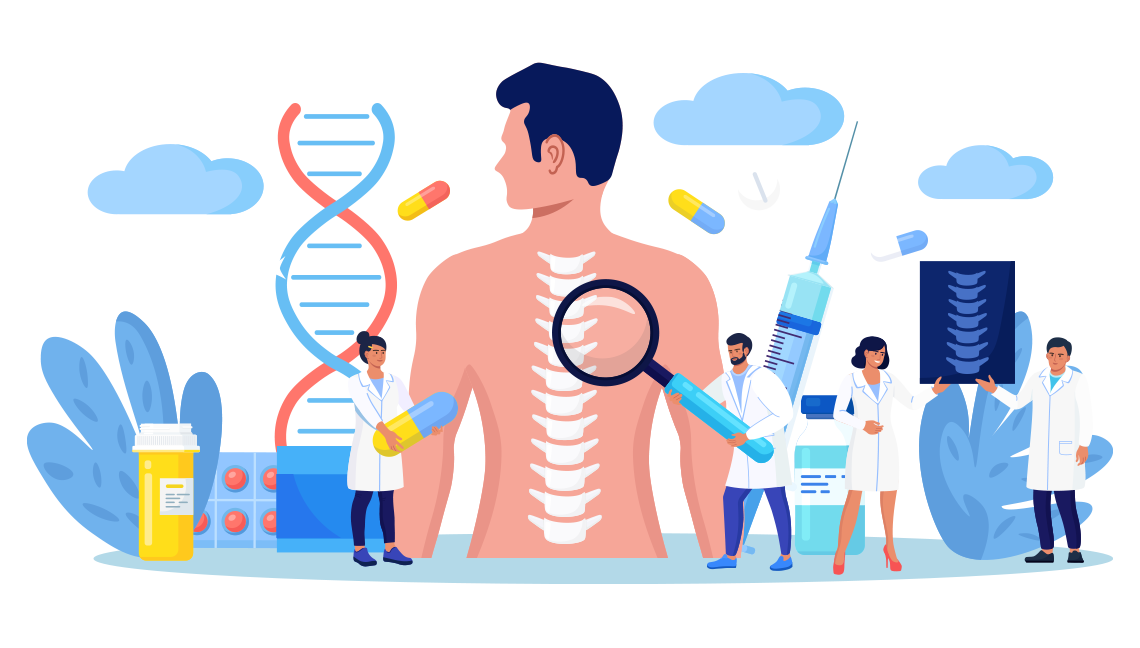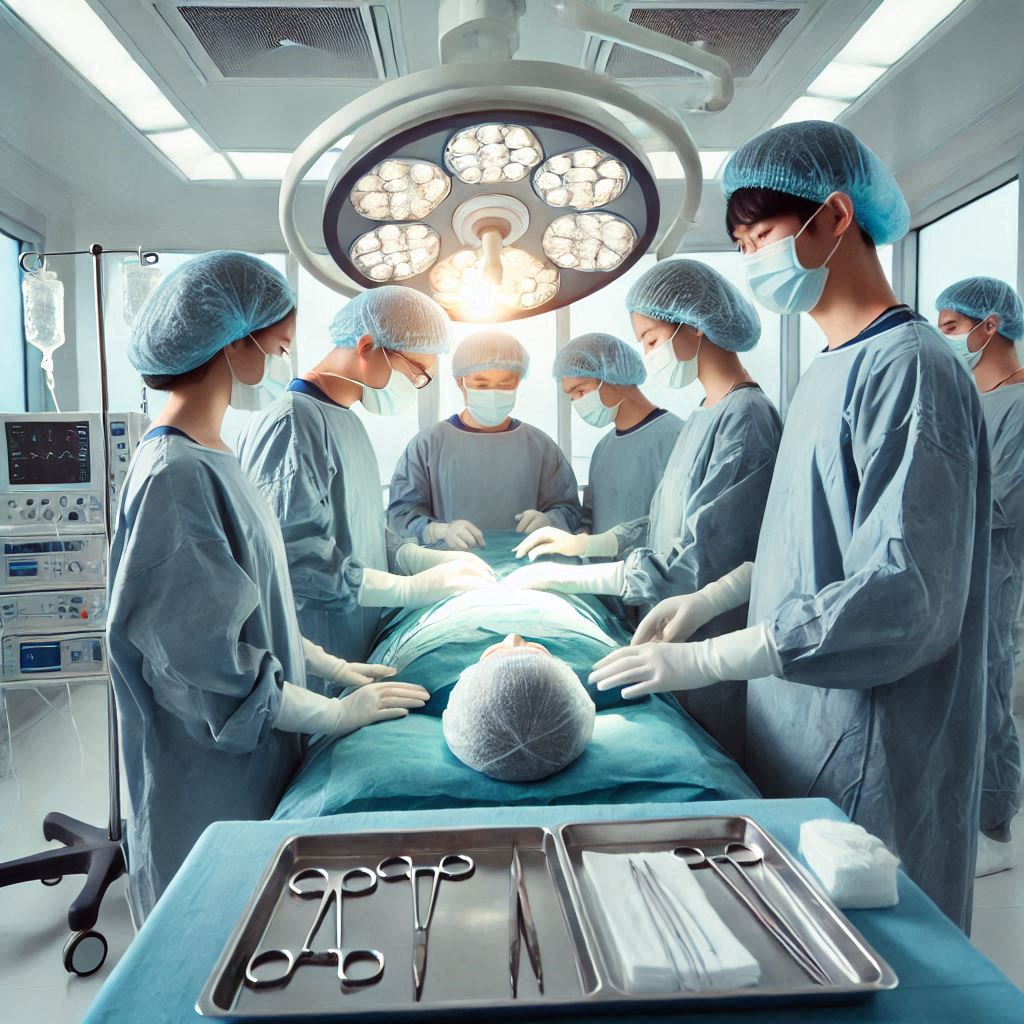This Course Structure is Curated as per the NEP-2020 Guidelines
Course Overview
M.Sc. Orthopaedic Technology program at Malla Reddy Vishwavidyapeeth, Hyderabad, is a postgraduate course designed to train students to assist orthopaedic surgeons in diagnosing, treating, and rehabilitating musculoskeletal conditions, using advanced technologies and techniques.
This program focuses on equipping students with the theoretical knowledge and hands-on skills from 1st semester itself. This program focuses on managing fractures, joint disorders, and musculoskeletal injuries, along with advanced imaging techniques, prosthetics, and orthopaedic device management. Students gain hands-on experience in assisting during procedures like joint replacements and arthroscopic surgeries, as well as in post-operative rehabilitation and mobility restoration.
Graduates of this program emerge as ‘Skilled Senior Orthopaedic Technologists’, enabling them to pursue further higher studies & do research in Orthopaedic Technology. They are equipped to work in hospitals, rehabilitation centers, and sports medicine clinics, playing a key role in enhancing patient mobility, recovery, and overall quality of life, along with plenty of job opportunities globally.

Course Details
Description: 2 Years Degree Program
No. of Seats: 20
No. of Credits: 80 minimum & as specified
- Eligibility
- Curriculum Structure
- Program Outcomes
- Career Enhancement
- Higher Studies
- Job Roles & Progression
The minimum eligibility is a B.Sc. degree in Orthopaedic Technology, Physiotherapy, or equivalent with at least 50% aggregate marks from a recognized university.
| Semester | Name of the Subject |
| Semester 1 | Advanced Anatomy of the Musculoskeletal System Fundamentals of Orthopaedic Procedures Orthopaedic Equipment and Devices Pharmacology in Orthopaedics Practical: Orthopaedic Instrumentation |
| Semester 2 | Fracture Management and Casting Techniques Orthopaedic Imaging and Diagnostics Infection Control in Orthopaedics Rehabilitation Techniques in Orthopaedics Practical: Fracture Management and Casting |
| Semester 3 | Paediatric and Geriatric Orthopaedics Sports Injury Management Research Methodology and Biostatistics Joint Replacement and Prosthetics Practical: Advanced Orthopaedic Procedures |
| Semester 4 | Orthopaedic Unit Management Emerging Technologies in Orthopaedics Thesis/Research Project Practical: Orthopaedic Unit Operations |
- Orthopaedic Diagnostic Techniques: Proficiency in interpreting imaging like X-rays, MRIs, and CT scans to diagnose musculoskeletal issues.
- Fracture Management and Casting: Skills in fracture stabilization, casting, splinting, and post-fracture care.
- Orthopaedic Equipment and Device Management: Knowledge of managing orthopaedic devices, prosthetics, and rehabilitation equipment.
- Rehabilitation and Post-Surgery Care: Expertise in therapeutic techniques for post-surgery recovery, including physical rehabilitation.
- Infection Control in Orthopaedics: Knowledge of sterilization and infection control protocols within orthopaedic departments.
- Orthopaedic Unit Management: Skills in overseeing the operations, resource allocation, and patient care within an orthopaedic unit.
- Certification in Advanced Fracture Management: Specialized training in fracture stabilization techniques, including casting and splinting.
- Certification in Orthopaedic Rehabilitation: Focus on rehabilitation practices for post-operative and injury recovery.
- Orthopaedic Imaging and Diagnostics Certification: Training in interpreting diagnostic imaging specific to orthopaedic conditions.
- Prosthetics and Orthotics Certification: Skills in fitting, managing, and educating patients on the use of prosthetics and orthotics.
- Orthopaedic Unit Management Certification: Training in the operational and administrative aspects of managing an orthopaedic department.
- Ph.D. in Orthopaedic Technology or Musculoskeletal Science
- Fellowship in Sports Medicine or PaediatricOrthopaedics
- Postgraduate Diploma in Orthopaedic Rehabilitation
- Advanced Certifications in Joint Replacement or Spine Care
| Duration | Roles and Responsibilities | Salary Range |
| 0-3 years | Orthopaedic Technologist, Cast Technician | ₹4,00,000 – ₹6,00,000 per annum |
| 3-5 years | Senior Orthopaedic Technologist, Prosthetics Specialist | ₹6,50,000 – ₹9,00,000 per annum |
| 5-10 years | Orthopaedic Unit Manager, Rehabilitation Specialist | ₹9,00,000 – ₹15,00,000 per annum |
| 10+ years | Director of Orthopaedic Services, Chief Orthopaedic Technologist | ₹15,00,000+ per annum |
Note: Salaries vary based on experience, location, and type of healthcare institution.

Fee Structure Per Academic Year
| Tuition Fee | Miscellaneous Fee | Scholarship | ||
| 200000 ₹ | 10000 ₹ | Above 90% – 40000 ₹ | Between 81-90% – 20000 ₹ | Between 71-80% – 10000 ₹ |




